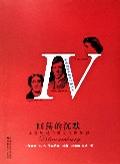https://www.youtube.com/watch?v=aGitmYl6U90&spfreload=10
約4分30秒起開始朗誦
The Curse of Minerva *
(composed: 17 March 1811, Athens)
http://mykeep.com/lordbyron/curseofminerva.html:89行起:
- “Mortal!”—’twas thus she spake—“that blush of shame
- Proclaims thee Briton, once a noble name;
- First of the mighty, foremost of the free,
- Now honour’d less by all, and least by me;
- Chief of thy foes shall Pallas still be found.
- Seek’st thou the cause of loathing?—look around.
- Lo! here, despite of war and wasting fire,
- I saw successive tyrannies expire.
- ’Scaped from the ravage of the Turk and Goth,
- Thy country sends a spoiler worse than both.
- Survey this vacant, violated fane;
- Recount the relics torn that yet remain:
- These Cecrops placed, this Pericles adorn’d,
- That Adrian rear’d when drooping Science mourn’d.
- What more I owe let gratitude attest—
- Know, Alaric and Elgin did the rest.
- That all may learn from whence the plunderer came,
- The insulted wall sustains his hated name:
- For Elgin’s fame thus grateful Pallas pleads,
- Below, his name—above, behold his deeds!
- Be ever hailed with equal honour here
- The Gothic monarch and the Pictish peer:
- arms gave the first his right, the last had none,
- But basely stole what less barbarians won.
- So when the lion quits his fell repast,
- Next prowls the wolf, the filthy jackal last;
- Flesh, limbs, and blood the former make their own,
- The last poor brute securely gnaws the bone.
- Yet still the gods are just, and crimes are cross’d:
- See here what Elgin won, and what he lost!
- Another name with his pollutes my shrine:
- Behold where Dian’s beams disdain to shine!
- Some retribution still might Pallas claim,
- When Venus half avenged Minerva’s shame.”
- She ceased awhile, and thus I dared reply,
- To soothe the vengeance kindling in her eye:
- “Daughter of Jove! in Britain’s injured name,
- A true-born Briton may the deed disclaim.
- Frown not on England; England owns him not:
- Athena, no! thy plunderer was a Scot.
- Ask’st thou the difference? From fair Phyles’ towers
- Survey Bœotia;—Caledonia’s ours.
- And well I know within that bastard land
- Hath Wisdom’s goddess never held command;
- A barren soil, where Nature’s germs, confined
- To stern sterility, can stint the mind;
- Whose thistle well betrays the niggard earth,
- Emblem of all to whom the land gives birth;
- Each genial influence nurtured to resist;
- A land of meanness, sophistry, and mist.
- Each breeze from foggy mount and marshy plain
- Dilutes with drivel every drizzly brain,
- Till, burst at length, each wat’ry head o’er-flows,
- Foul as their soil, and frigid as their snows.
- Then thousand schemes of petulance and pride
- Despatch her scheming children far and wide:
- Some east, some west, some everywhere but north,
- In quest of lawless gain, they issue forth.
- And thus—accursed be the day and year!
- Yet Caledonia claims some native worth,
- As dull Bœotia gave a Pindar birth;
- So may her few, the letter’d and the brave,
- Bound to no clime, and victors of the grave,
- Shake off the sordid dust of such a land,
- And shine like children of a happier strand;
- As once, of yore, in some obnoxious place,
- Ten names (if found) had saved a wretched race.”

